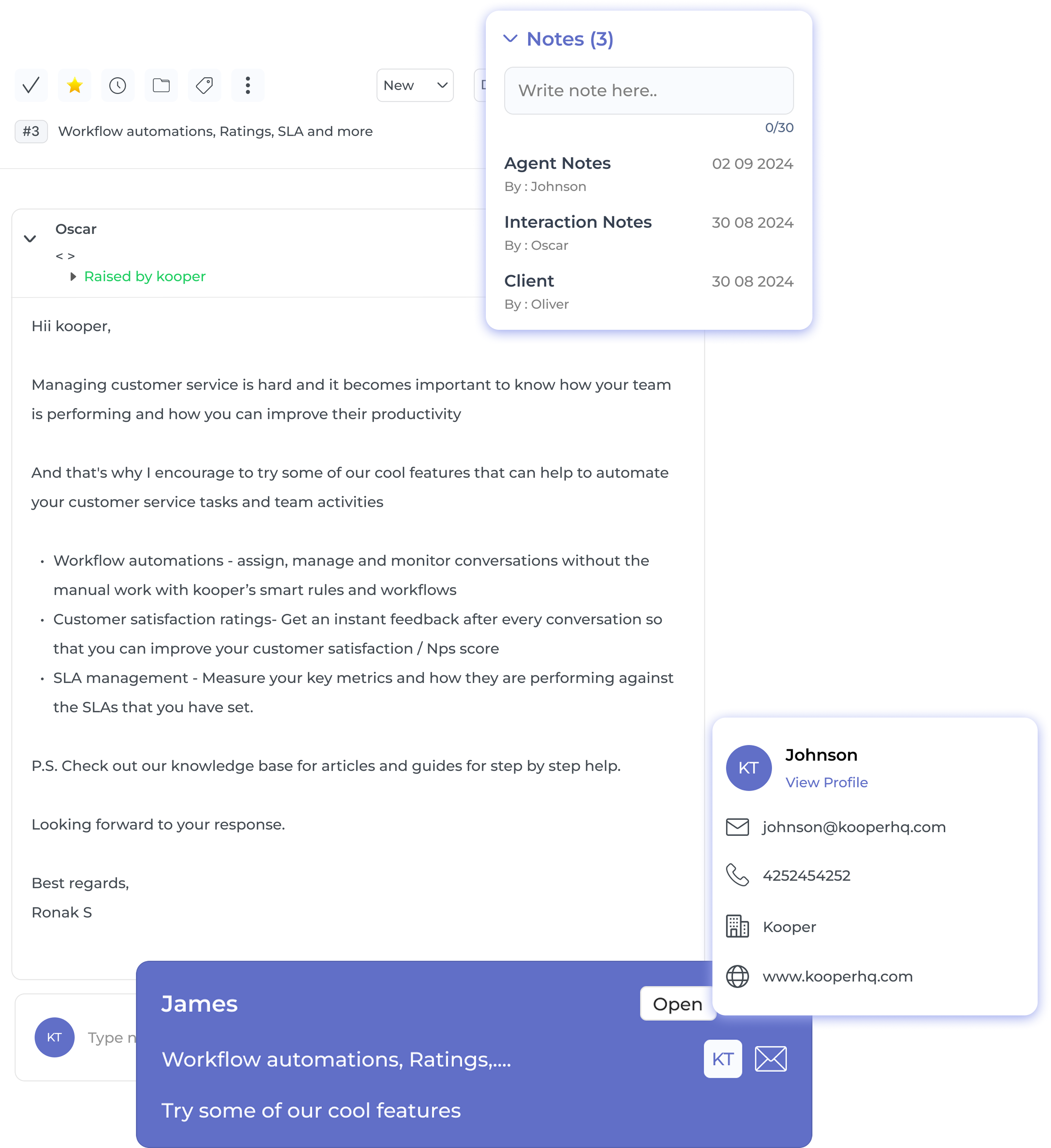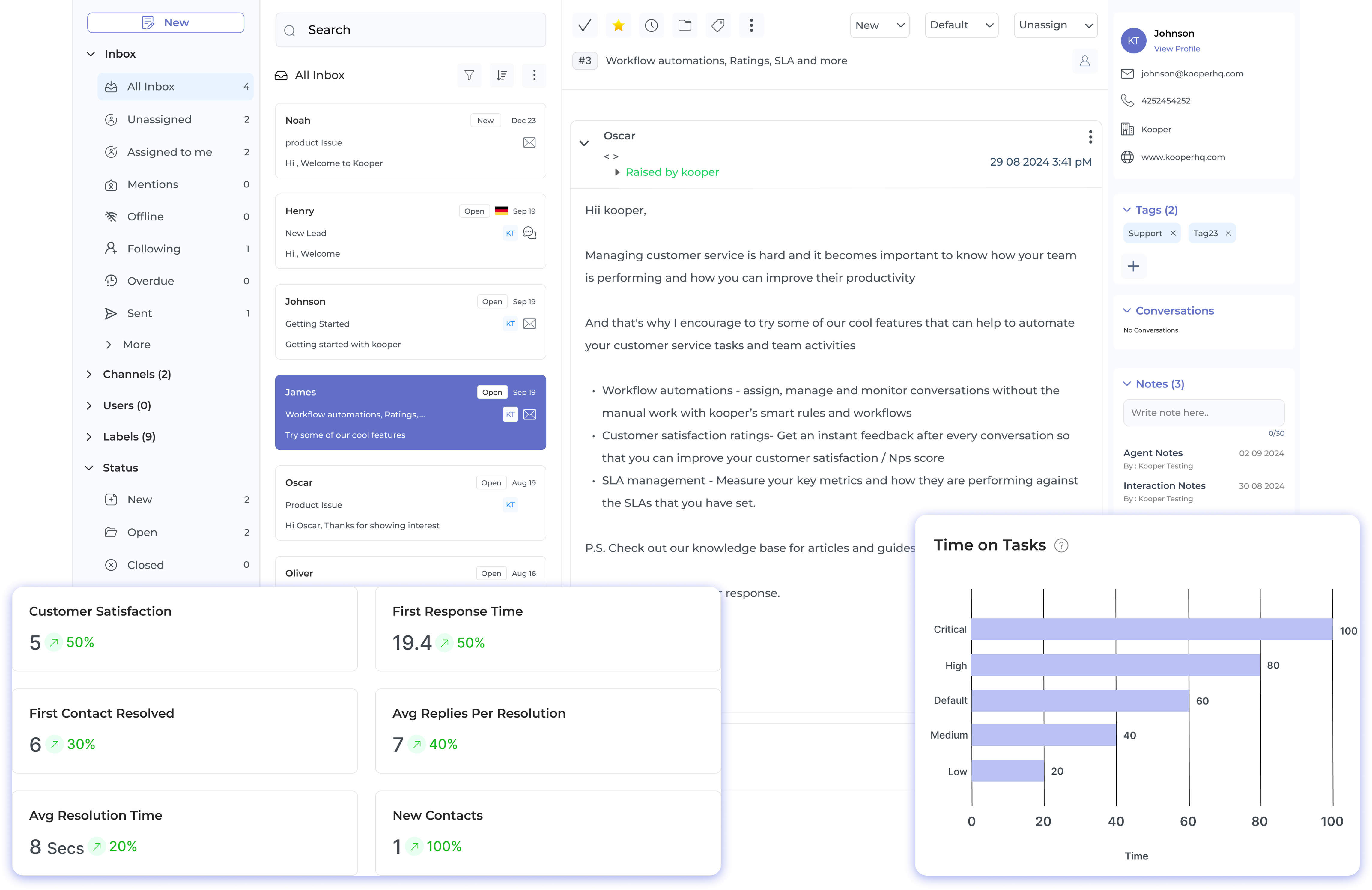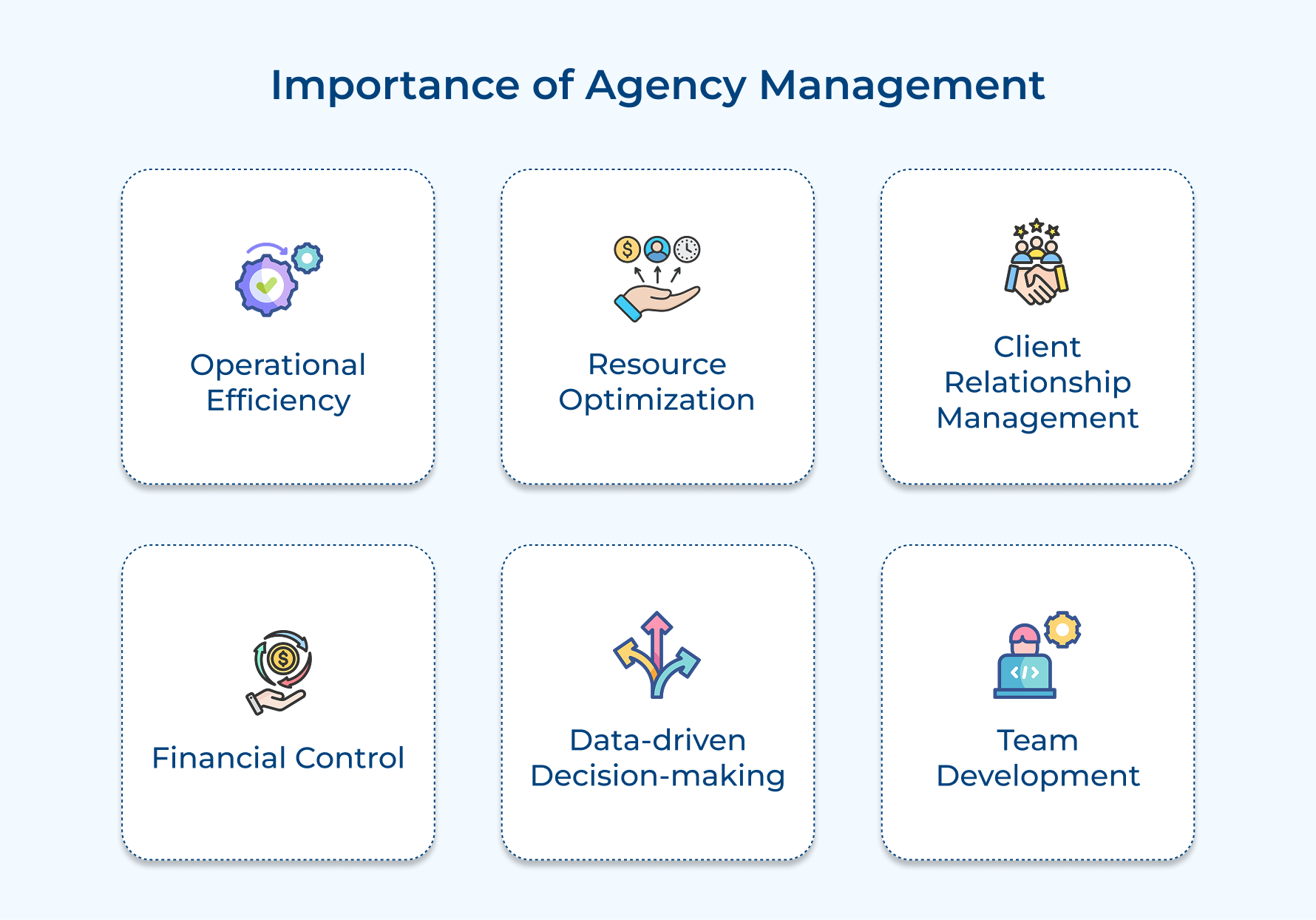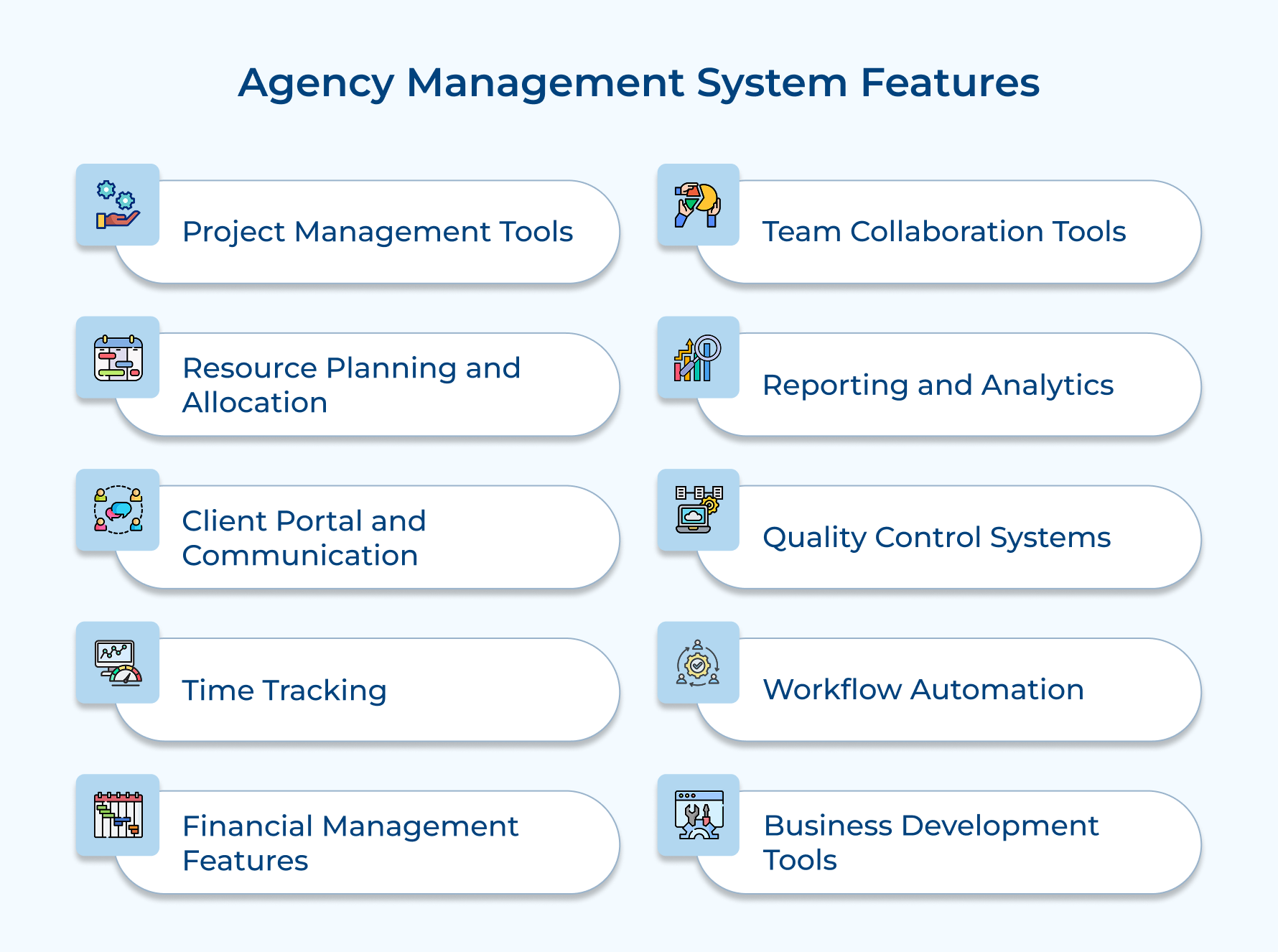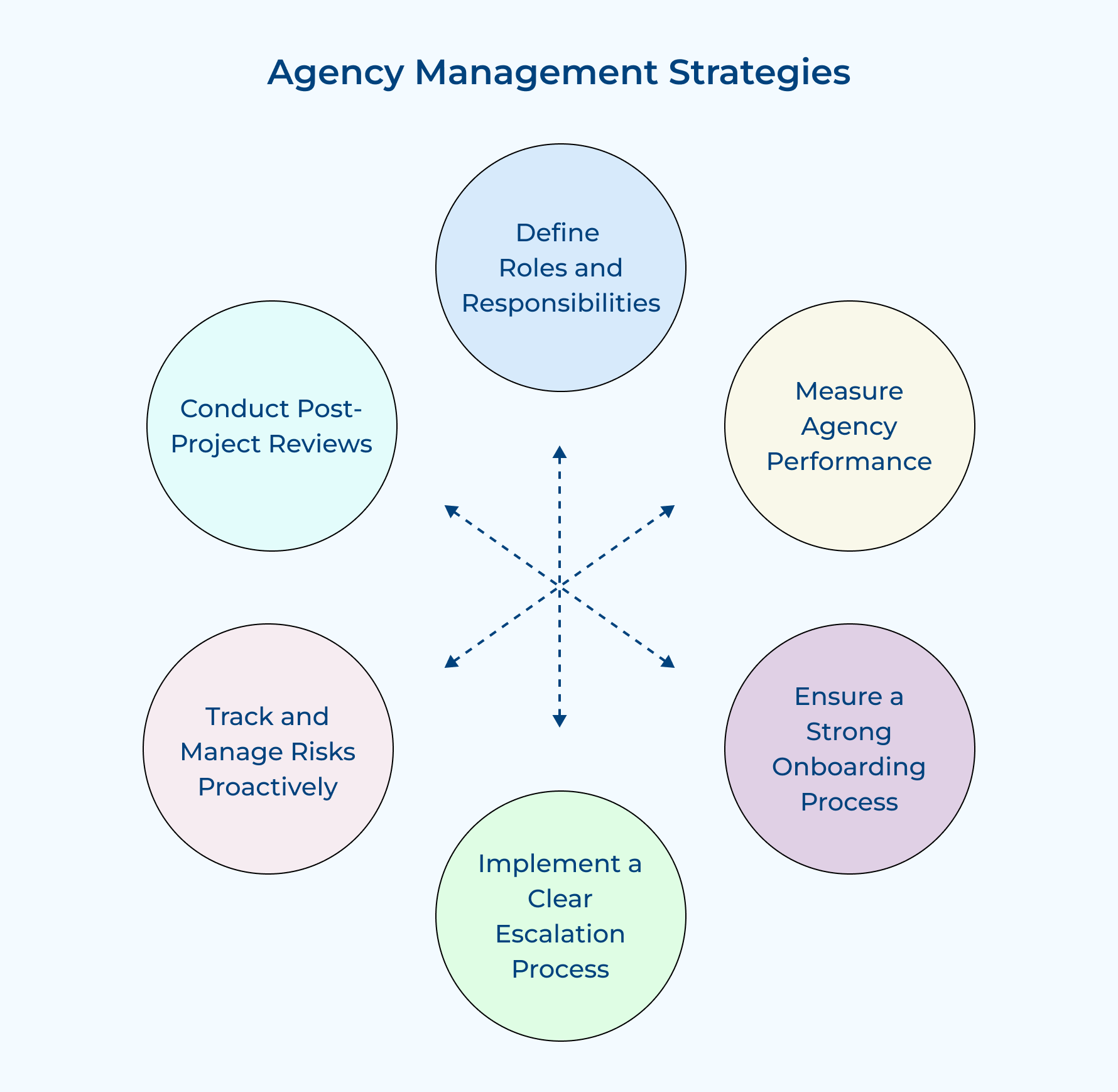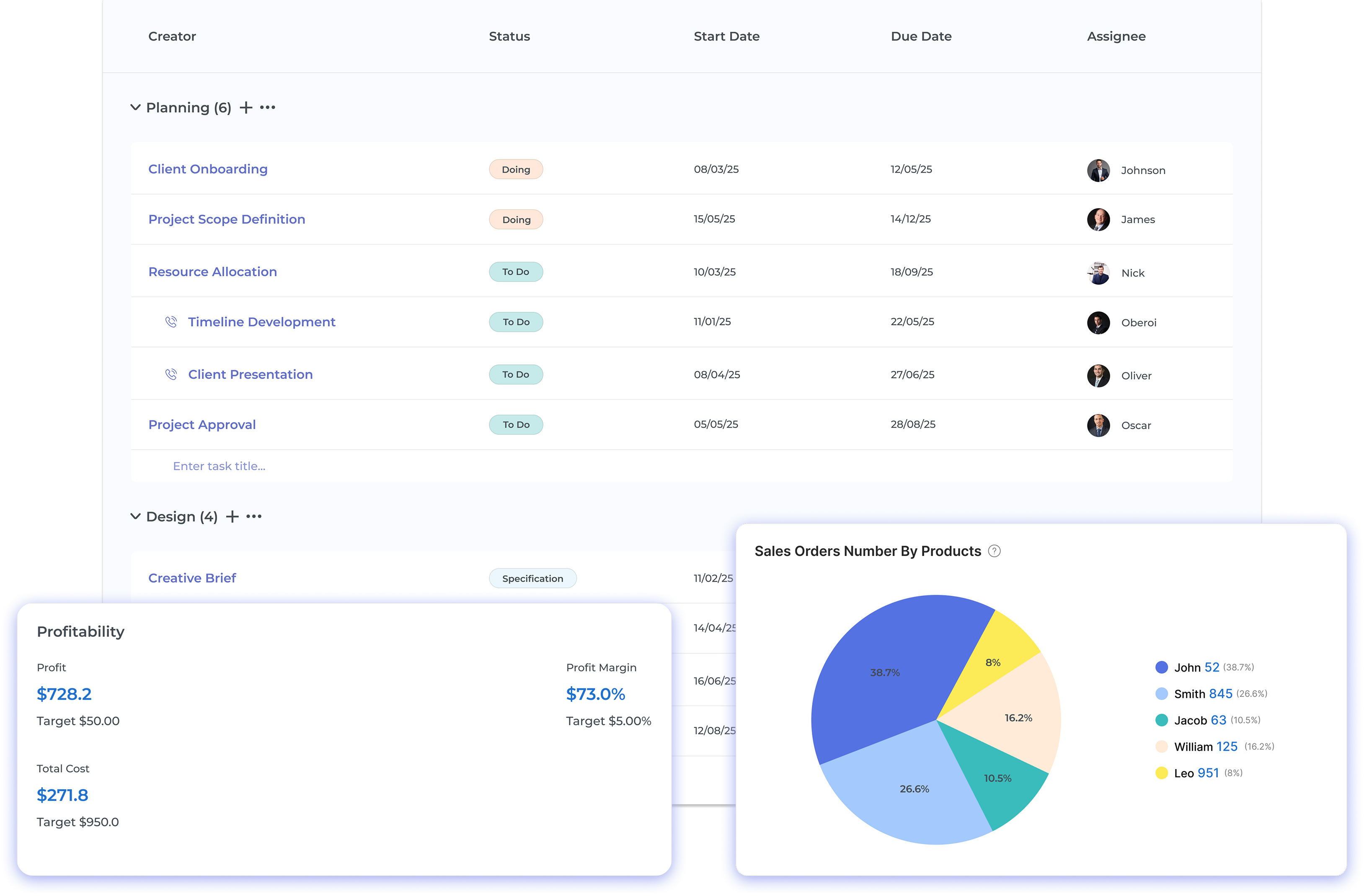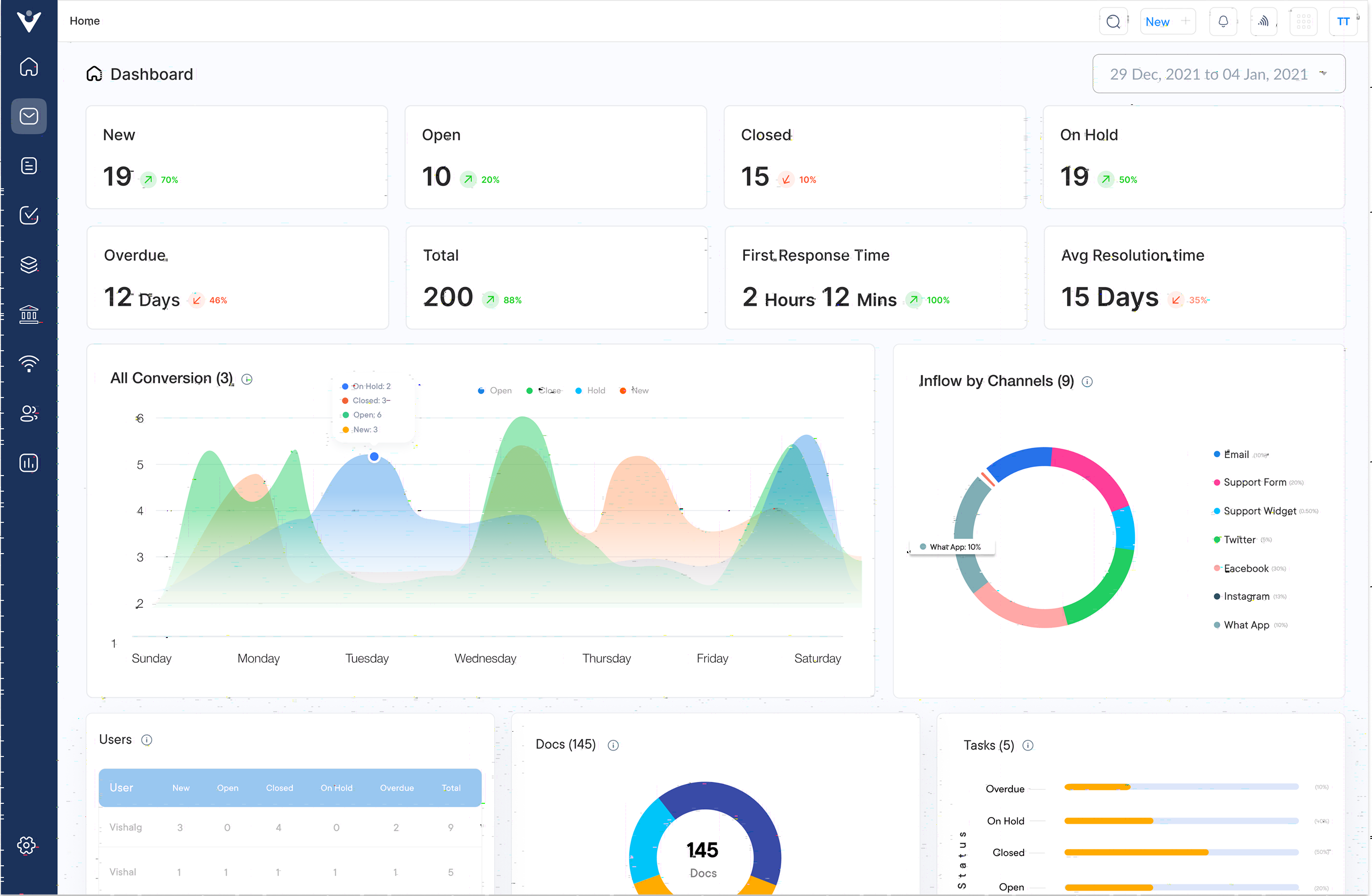Project Management Tools
Agency management systems provide robust project management features tailored for creative workflows. They include customizable templates, milestone tracking, task assignments, deadline management, and Gantt charts.
Project managers can create schedules, set dependencies, track progress, and adjust timelines as needed. With the help of agency project management software, these tools also support document sharing, version control, and approval workflows, ensuring real-time updates as well as alerts for potential delays or issues.
Resource Planning and Allocation
Resource management features enable agencies to optimize team utilization and workload distribution. The system provides visual capacity planning tools, skill-matching capabilities along with resource forecasting.
Managers get to view team availability, assign resources based on expertise/capacity, and prevent overbooking. Advanced features include resource conflict detection, utilization reports and predictive analytics for future resource needs, all while maintaining balanced workloads across teams.
Client Portal and Communication
Dedicated client portals offer secure platforms for client collaboration and project transparency. A client portal for agencies ensures that clients can easily access project updates, review deliverables, provide feedback, and approve work through intuitive interfaces.
The system maintains communication histories, tracks client interactions, and enables file sharing. Built-in notification systems keep clients informed of project progress while maintaining professional communication standards and streamlining approval processes.
Time Tracking
Advanced time tracking features help teams record billable hours, track project time and monitor task duration. The system supports various time entry methods, including timers, manual entry and mobile tracking.
Key features include automated reminders, time approval workflows and integration with billing systems. Time data is linked to project budgets, resource utilization reports and profitability analysis for better financial management.
Financial Management Features
Financial tools include budget tracking, expense management, invoicing, and profitability analysis. The system works like an agency billing software, allowing teams to create project budgets, track costs in real-time, and automate billing based on time entries and milestones.
Advanced features include revenue forecasting, margin analysis, and integration with accounting systems. Customizable billing rates, expense tracking, and detailed financial reports ensure complete financial oversight.
Team Collaboration Tools
Collaboration features streamline team communication and project coordination. Teams in marketing agencies can leverage marketing agency software to simplify document collaboration, internal messaging, and task discussions.
Teams can manage deliverables, share feedback, and track revisions in real-time. The system supports both formal as well as informal communication while maintaining project context and documentation.
Reporting and Analytics
Advanced reporting tools offer valuable insights into agency performance, project status and resource utilization. Agency CRM software enhances these dashboards by displaying key metrics and providing detailed reports that assess project profitability, team productivity, and client satisfaction.
The system includes data visualization, trend analysis and custom report generation, enabling informed decision-making as well as performance optimization.
Quality Control Systems
Quality assurance features help maintain consistent deliverable standards through structured review and approval processes. Agencies leveraging the best ERP for agencies can implement customizable quality checklists, efficient review workflows, and automated approval routing.
Teams can track revisions, manage feedback cycles, and ensure compliance with client requirements while documenting quality control steps.
Workflow Automation
Automation capabilities streamline routine tasks and standardize agency processes. Features include automated notifications, approval routing, status updates, and task assignments.
The system can automate project setup, resource allocation, time reminder emails, and invoice generation. Customizable workflow rules ensure consistent process execution while reducing manual administrative work.
Business Development Tools
Sales and business development features help agencies acquire new clients as well as manage relationships. Tools include lead tracking, proposal creation, pipeline management and opportunity tracking.
The system streamlines pitch processes, monitors potential projects and converts prospects into clients while maintaining detailed interaction histories as well as sales analytics.
